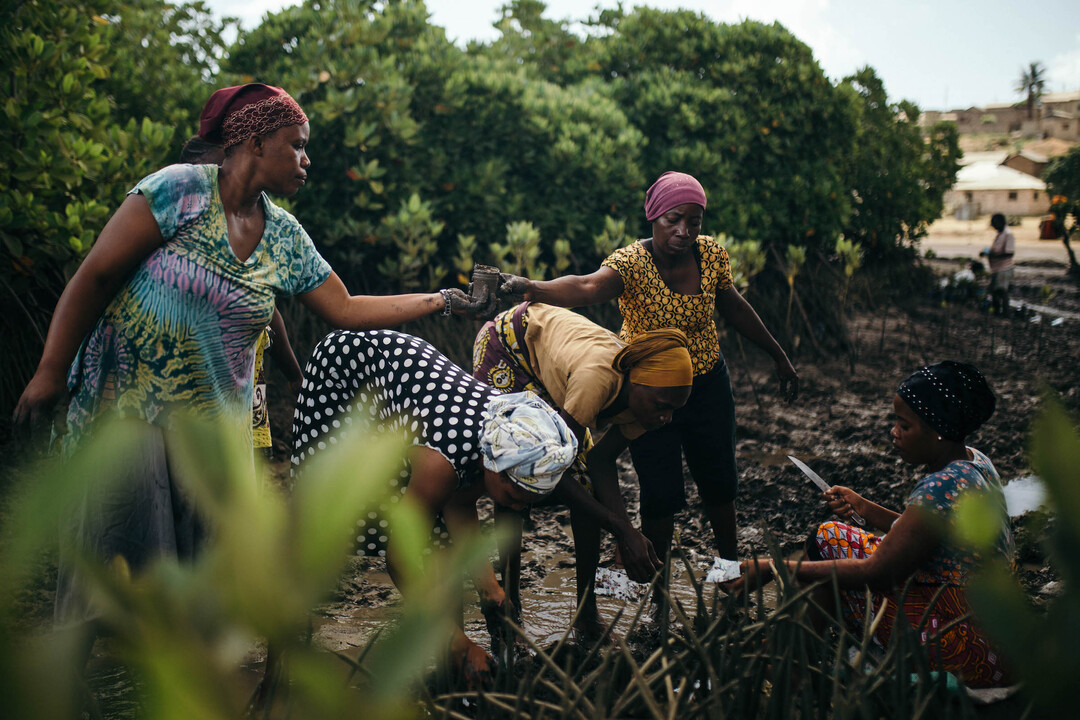
NAIROBI, Kenya – Amid the relentless march of urbanization across Africa, Kenyan cities are increasingly grappling with the detrimental effects of lost natural habitats – from the cacophony of traffic and the haze of emissions to the stark reality of burgeoning "concrete jungles." In Nairobi, the nation's capital, the ecological toll has been stark, with forest cover plummeting from a robust 14% in 1976 to a mere 3.3% by 2000. Similarly, the city's natural vegetation dwindled from 15% in 1979 to a critical 2.7% in the same period, according to the International Livestock Research Institute headquartered in Nairobi.
However, a beacon of hope is emerging from an unlikely source: a unique ecological restoration technique known as the Miyawaki method. This innovative approach, pioneered by the esteemed Japanese botanist Akira Miyawaki in the 1970s, focuses on rapidly establishing dense, native forests within small urban spaces. By mimicking the natural processes of forest regeneration, the Miyawaki method is helping Nairobi reclaim its lost ecological glory, one mini-forest at a time.
The core principle of the Miyawaki method involves the intensive planting of a diverse mix of native tree species in close proximity on degraded land. This high-density planting encourages rapid growth and the formation of a dense canopy, effectively suppressing weeds and creating a self-sustaining ecosystem much faster than traditional afforestation efforts.
In Nairobi, this method has taken root since 2007, with significant success in establishing mini-forests across three key areas. Between 2011 and 2020 alone, over 236,212 seedlings representing 16 carefully selected native species were planted. These species, including Schrebera alata, Rawsonia lucida, Croton megalocarpus, and Olea europaea ssp. africana, were chosen based on meticulous studies of relatively undisturbed natural forests in the surrounding Ngong, Oloolua, Ngong Road, and Karura forests. This ensures that the newly established mini-forests reflect the region's potential natural vegetation (PNV), maximizing their ecological value and resilience.
Professor Samuel Kiboi, a faculty member in the biology department at the College of Biological and Physical Sciences in Nairobi and a leading researcher in Miyawaki implementation in Kenya, emphasizes the method's efficiency. "The Miyawaki method offers the best technique to create natural forests in small areas with fast growth and less maintenance costs," he states. "The method is particularly relevant for the creation of natural mini forests in urban areas."
The impact of these mini-forests extends beyond mere aesthetics. They serve as vital carbon sinks, absorbing atmospheric carbon dioxide and mitigating climate change. Furthermore, they enhance water retention, improve soil health, and foster biodiversity, creating crucial ecosystem services within the urban landscape. The lush greenery also offers respite from the urban hustle, attracting nature lovers and potentially boosting local tourism.
The project has also fostered significant benefits for local communities. Residents like Joseph Kamau Machina from Karura have become integral to the reforestation efforts, supplying over 30,000 seedlings and finding employment in the ongoing maintenance of these burgeoning forests. This community involvement not only supports the project but also instills a sense of ownership and environmental stewardship.
Despite its numerous advantages, the Miyawaki method does present certain challenges. Professor Kiboi points out that understanding the PNV through scientific studies is crucial for successful implementation. Additionally, sourcing the specific native seedlings in the required quantities can initially be difficult, as commercial nurseries often prioritize high-demand species. The high-density planting also translates to higher initial costs due to the sheer number of seedlings required. Simon Kage, director at Integrated Forest Consultancy and Management Services, the company partnering with Japan’s Yokohama City University on these projects, notes that while a typical reforestation project might use 1,000-1,100 seedlings per hectare, the Miyawaki method necessitates 8,000-10,000 seedlings for the same area.
However, the long-term benefits significantly outweigh these initial hurdles. Once established, the dense canopy of a Miyawaki forest naturally suppresses invasive species, leading to negligible or zero subsequent maintenance costs. The rapid growth and enhanced biodiversity create resilient ecosystems that require minimal human intervention.
As Nairobi continues to embrace the "Miyawaki magic," these urban mini-forests offer a powerful model for ecological restoration in other African cities facing similar environmental challenges. By prioritizing native species and mimicking natural forest dynamics, this innovative approach provides a fast track to regreening urban landscapes, enhancing biodiversity, and ultimately restoring the ecological balance that is vital for the health and well-being of city dwellers. The success in Nairobi demonstrates that even within the confines of urban sprawl, pockets of vibrant, native forest can flourish, bringing back a touch of the lost ecological glory.
[Copyright (c) Global Economic Times. All Rights Reserved.]




























